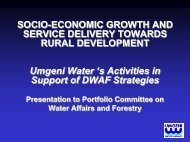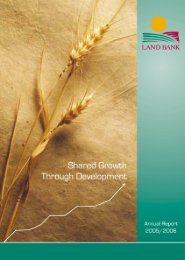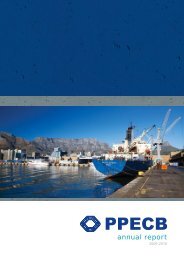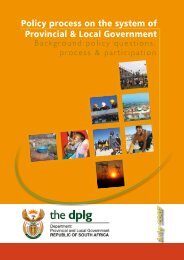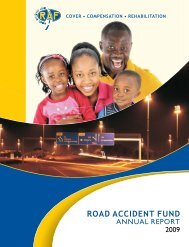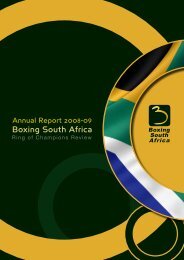- Page 1 and 2:
Human Settlements Review VOLUME 1,
- Page 3 and 4:
CONTENT Page FOREWORD i Design inst
- Page 5 and 6:
Human Settlements Review, Volume 1,
- Page 7 and 8:
Human Settlements Review, Volume 1,
- Page 9 and 10:
Human Settlements Review, Volume 1,
- Page 11 and 12:
Human Settlements Review, Volume 1,
- Page 13 and 14:
Human Settlements Review, Volume 1,
- Page 15 and 16:
Human Settlements Review, Volume 1,
- Page 17 and 18:
Human Settlements Review, Volume 1,
- Page 19 and 20:
Human Settlements Review, Volume 1,
- Page 21 and 22:
Human Settlements Review, Volume 1,
- Page 23 and 24:
Human Settlements Review, Volume 1,
- Page 25 and 26:
Human Settlements Review, Volume 1,
- Page 27 and 28:
Human Settlements Review, Volume 1,
- Page 29 and 30:
Human Settlements Review, Volume 1,
- Page 31 and 32:
Human Settlements Review, Volume 1,
- Page 33 and 34:
Human Settlements Review, Volume 1,
- Page 35 and 36:
Dictionary.com. 2010. alternative t
- Page 37 and 38:
Human Settlements Review, Volume 1,
- Page 39 and 40:
Human Settlements Review, Volume 1,
- Page 41 and 42:
Human Settlements Review, Volume 1,
- Page 43 and 44:
Human Settlements Review, Volume 1,
- Page 45 and 46:
Human Settlements Review, Volume 1,
- Page 47 and 48:
Human Settlements Review, Volume 1,
- Page 49 and 50:
Human Settlements Review, Volume 1,
- Page 51 and 52:
Human Settlements Review, Volume 1,
- Page 53 and 54:
Human Settlements Review, Volume 1,
- Page 55 and 56:
Human Settlements Review, Volume 1,
- Page 57 and 58:
Human Settlements Review, Volume 1,
- Page 59 and 60:
Human Settlements Review, Volume 1,
- Page 61 and 62:
Human Settlements Review, Volume 1,
- Page 63 and 64:
Human Settlements Review, Volume 1,
- Page 65 and 66:
Human Settlements Review, Volume 1,
- Page 67 and 68:
Human Settlements Review, Volume 1,
- Page 69 and 70:
Human Settlements Review, Volume 1,
- Page 71 and 72:
Human Settlements Review, Volume 1,
- Page 73 and 74:
Human Settlements Review, Volume 1,
- Page 75 and 76:
Human Settlements Review, Volume 1,
- Page 77 and 78:
Human Settlements Review, Volume 1,
- Page 79 and 80:
Table 4: Building technology - Soci
- Page 81 and 82:
Human Settlements Review, Volume 1,
- Page 83 and 84:
Human Settlements Review, Volume 1,
- Page 85 and 86:
Human Settlements Review, Volume 1,
- Page 87 and 88:
Human Settlements Review, Volume 1,
- Page 89 and 90:
Human Settlements Review, Volume 1,
- Page 91 and 92:
Human Settlements Review, Volume 1,
- Page 93 and 94:
Human Settlements Review, Volume 1,
- Page 95 and 96:
Human Settlements Review, Volume 1,
- Page 97 and 98:
Human Settlements Review, Volume 1,
- Page 99 and 100:
Human Settlements Review, Volume 1,
- Page 101 and 102:
Human Settlements Review, Volume 1,
- Page 103 and 104:
Human Settlements Review, Volume 1,
- Page 105 and 106:
ABSTRACT Human Settlements Review,
- Page 107 and 108:
Human Settlements Review, Volume 1,
- Page 109 and 110:
Human Settlements Review, Volume 1,
- Page 111 and 112:
Human Settlements Review, Volume 1,
- Page 113 and 114:
Human Settlements Review, Volume 1,
- Page 115 and 116:
Human Settlements Review, Volume 1,
- Page 117 and 118:
Human Settlements Review, Volume 1,
- Page 119 and 120:
Human Settlements Review, Volume 1,
- Page 121 and 122:
Human Settlements Review, Volume 1,
- Page 123 and 124:
Human Settlements Review, Volume 1,
- Page 125 and 126:
Human Settlements Review, Volume 1,
- Page 127 and 128:
Human Settlements Review, Volume 1,
- Page 129 and 130:
Human Settlements Review, Volume 1,
- Page 131 and 132:
Human Settlements Review, Volume 1,
- Page 133 and 134:
Human Settlements Review, Volume 1,
- Page 135 and 136:
Human Settlements Review, Volume 1,
- Page 137 and 138:
Human Settlements Review, Volume 1,
- Page 139 and 140:
Human Settlements Review, Volume 1,
- Page 141 and 142:
Human Settlements Review, Volume 1,
- Page 143 and 144:
Human Settlements Review, Volume 1,
- Page 145 and 146:
Human Settlements Review, Volume 1,
- Page 147 and 148:
Human Settlements Review, Volume 1,
- Page 149 and 150:
Human Settlements Review, Volume 1,
- Page 151 and 152:
Human Settlements Review, Volume 1,
- Page 153 and 154:
Human Settlements Review, Volume 1,
- Page 155 and 156:
Human Settlements Review, Volume 1,
- Page 157 and 158:
Human Settlements Review, Volume 1,
- Page 159 and 160:
Human Settlements Review, Volume 1,
- Page 161 and 162:
Human Settlements Review, Volume 1,
- Page 163 and 164:
Human Settlements Review, Volume 1,
- Page 165 and 166:
Human Settlements Review, Volume 1,
- Page 167 and 168:
Human Settlements Review, Volume 1,
- Page 169 and 170: Human Settlements Review, Volume 1,
- Page 171 and 172: Human Settlements Review, Volume 1,
- Page 173 and 174: Human Settlements Review, Volume 1,
- Page 175 and 176: Human Settlements Review, Volume 1,
- Page 177 and 178: Human Settlements Review, Volume 1,
- Page 179 and 180: Human Settlements Review, Volume 1,
- Page 181 and 182: Human Settlements Review, Volume 1,
- Page 183 and 184: Human Settlements Review, Volume 1,
- Page 185 and 186: Human Settlements Review, Volume 1,
- Page 187 and 188: Human Settlements Review, Volume 1,
- Page 189 and 190: Human Settlements Review, Volume 1,
- Page 191 and 192: Human Settlements Review, Volume 1,
- Page 193 and 194: Human Settlements Review, Volume 1,
- Page 195 and 196: Human Settlements Review, Volume 1,
- Page 197 and 198: Human Settlements Review, Volume 1,
- Page 199 and 200: UNDP, 2005. Investing in Developmen
- Page 201 and 202: Human Settlements Review, Volume 1,
- Page 203 and 204: Human Settlements Review, Volume 1,
- Page 205 and 206: Human Settlements Review, Volume 1,
- Page 207 and 208: Human Settlements Review, Volume 1,
- Page 209 and 210: Human Settlements Review, Volume 1,
- Page 211 and 212: Human Settlements Review, Volume 1,
- Page 213 and 214: Human Settlements Review, Volume 1,
- Page 215 and 216: Human Settlements Review, Volume 1,
- Page 217 and 218: Human Settlements Review, Volume 1,
- Page 219: Human Settlements Review, Volume 1,
- Page 223 and 224: Figure 1 Per Capita energy use and
- Page 225 and 226: Human Settlements Review, Volume 1,
- Page 227 and 228: Human Settlements Review, Volume 1,
- Page 229 and 230: Figure 3 Model validation and resul
- Page 231 and 232: Human Settlements Review, Volume 1,
- Page 233 and 234: Human Settlements Review, Volume 1,
- Page 235 and 236: Human Settlements Review, Volume 1,
- Page 237 and 238: Human Settlements Review, Volume 1,
- Page 239 and 240: Human Settlements Review, Volume 1,
- Page 241 and 242: Human Settlements Review, Volume 1,
- Page 243 and 244: Human Settlements Review, Volume 1,
- Page 245 and 246: Human Settlements Review, Volume 1,
- Page 247 and 248: Human Settlements Review, Volume 1,
- Page 249 and 250: Human Settlements Review, Volume 1,
- Page 251 and 252: Human Settlements Review, Volume 1,
- Page 253 and 254: Human Settlements Review, Volume 1,
- Page 255 and 256: Human Settlements Review, Volume 1,
- Page 257 and 258: Human Settlements Review, Volume 1,
- Page 259 and 260: Human Settlements Review, Volume 1,
- Page 261 and 262: Human Settlements Review, Volume 1,
- Page 263 and 264: Human Settlements Review, Volume 1,
- Page 265 and 266: Human Settlements Review, Volume 1,
- Page 267 and 268: Human Settlements Review, Volume 1,
- Page 269 and 270: Human Settlements Review, Volume 1,
- Page 271 and 272:
Human Settlements Review, Volume 1,
- Page 273 and 274:
Human Settlements Review, Volume 1,
- Page 275 and 276:
Human Settlements Review, Volume 1,
- Page 277 and 278:
Human Settlements Review, Volume 1,
- Page 279 and 280:
Human Settlements Review, Volume 1,



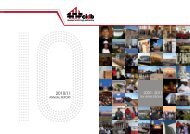
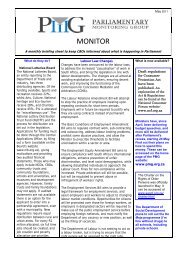
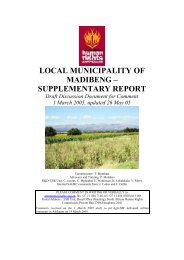
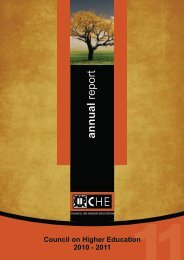
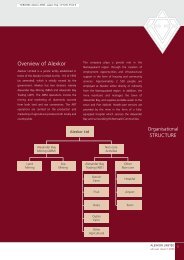
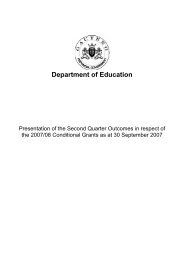
![National Research Foundation Annual Report 2008 / 2009 [Part 2]](https://img.yumpu.com/49774036/1/177x260/national-research-foundation-annual-report-2008-2009-part-2.jpg?quality=85)
